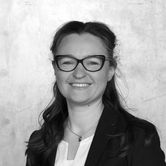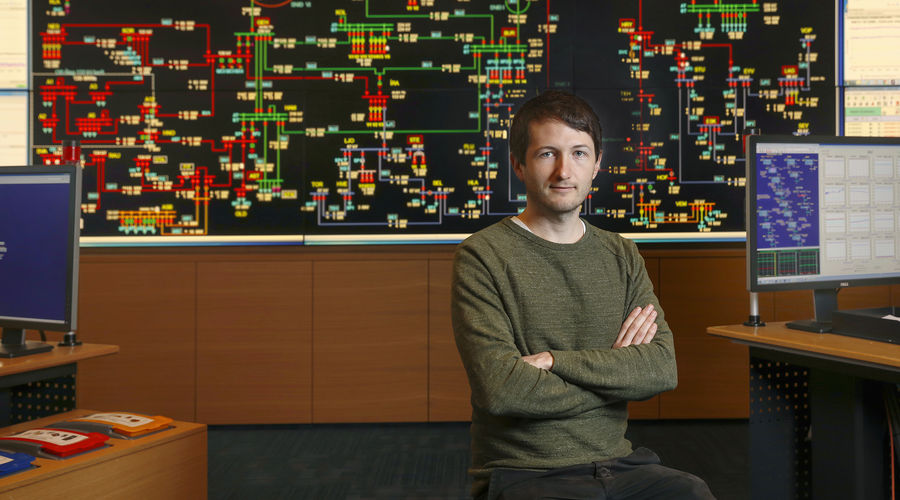EU-FP7 GARPUR: ISE scholars partake in European research on grid reliability
Two Reykjavik University professors and ISE PhD student conduct research in EU-wide grid project.
 REYKJAVIK, December 6 - Funded under the 7th European Project Framework, GARPUR
set out to design, develop, assess and evaluate a new reliability criteria for operators
of national and multinational electrical grids with a focus on maximizing
social welfare. A set of newly developed probabilistic criteria are expected to
be progressively implemented over the next few years at a pan-European level.
The project is coordinated by SINTEF Energy Research based in Norway and brings
together 7 European Transmission System Operators (Belgium, Bulgaria, Czech Republic,
Denmark, France, Iceland and Norway), 12 R&D providers and one innovation
management expert. Integrated in the project through the Icelandic
participants, Landsnet and Haskolinn i Reykjavik, are three ISE affiliated
academics.
REYKJAVIK, December 6 - Funded under the 7th European Project Framework, GARPUR
set out to design, develop, assess and evaluate a new reliability criteria for operators
of national and multinational electrical grids with a focus on maximizing
social welfare. A set of newly developed probabilistic criteria are expected to
be progressively implemented over the next few years at a pan-European level.
The project is coordinated by SINTEF Energy Research based in Norway and brings
together 7 European Transmission System Operators (Belgium, Bulgaria, Czech Republic,
Denmark, France, Iceland and Norway), 12 R&D providers and one innovation
management expert. Integrated in the project through the Icelandic
participants, Landsnet and Haskolinn i Reykjavik, are three ISE affiliated
academics.
 Dr. Friðrik Már Baldursson and Dr. Ewa L. Carlson, Professor and Assistant Professor in Economics at Haskolinn i Reykjavik respectively, lead Work Package 3 of GARPUR. Participants of WP3, one of a total of 11 work packages, were tasked with developing a framework for a socio-economic impact assessment, allowing grid operators to better quantify the impact of
operations and development on society and the environment. Friðrik and Ewa's work has yielded two reports up until this point: On March 9th, 2016, D3.1 - Quantification method in the absence of market response and with market response taken into account was published. More recently on November 7th, 2016, D3.2 - Recommendations for implementing the socio-economic impact assessment methodology has been delivered.
Dr. Friðrik Már Baldursson and Dr. Ewa L. Carlson, Professor and Assistant Professor in Economics at Haskolinn i Reykjavik respectively, lead Work Package 3 of GARPUR. Participants of WP3, one of a total of 11 work packages, were tasked with developing a framework for a socio-economic impact assessment, allowing grid operators to better quantify the impact of
operations and development on society and the environment. Friðrik and Ewa's work has yielded two reports up until this point: On March 9th, 2016, D3.1 - Quantification method in the absence of market response and with market response taken into account was published. More recently on November 7th, 2016, D3.2 - Recommendations for implementing the socio-economic impact assessment methodology has been delivered.

Additionally, one of the Iceland School of Energy PhD students, Samuel Perkin, has been involved in the EU FP7 GARPUR project WP6 and WP8 as part of his doctoral work. Last week on December 1st, 2016, they released a report, named D6.2, that outlined the plan for implementation of the newly developed algorithms which are expected to analyze grid reliability in real-time and over a short-term period. The new methods are expected to allow grid operators to better assess and manage the risks associated with greater penetration of renewable technologies and threats to the system such as extreme weather conditions or generation intermittency. Samuel was involved in the development of the algorithms for real-time reliability assessment and will be performing a pilot test of some of the algorithms in D6.2 in the coming months, as described in this GARPUR report. Similar tests will be performed by grid operators in France and Belgium. It is expected that the ideas presented by the project will eventually replace the N-1 criterion, which states that the system should be designed and operated to withstand the loss of any single major component. This will hopefully lead to improved efficiency of the power system, and allow for greater penetration of renewable energy. The overall project costs are estimated to be 10.9M€, with a corresponding contribution from the European Commission of 7.8M€. GARPUR started September 1st 2013 and will run for 4 years until August 31st 2017.
